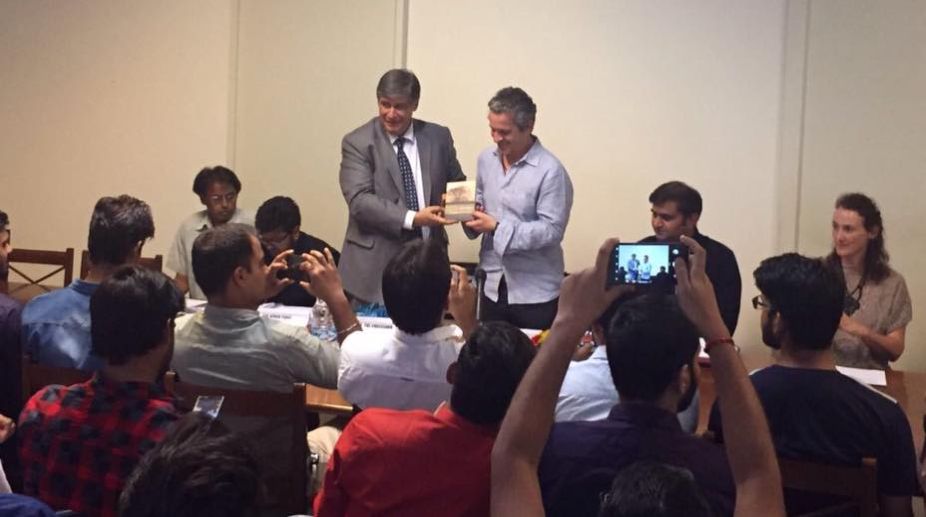Death…What does it mean? Each one of us has a different perception of mortality. One such perspective is in Morresteme, penned by noted Portuguese writer Jose Luis Peixoto. The Indian edition of the work, published by Goa 1556 Publishers, is trilingual (Hindi, English and Portuguese).
The book was released by the Ambassador of Portugal, Joao da Camara, at Instituto Camoes ~ the Portuguese Embassy Cultural Centre ~ in New Delhi at a literary evening. While the Hindi title of the book is Tum Choor Gaye, the title of the English translation is You Died.
Advertisement
The titles draw attention to the crux of the book, which revolves around the passing away of the author's father, and his experiences of dealing with the grief, and coming to terms with the fact.
Anil Kumar Yadav, an MPhil student of Portuguese language, is one of the translators of the book into Hindi. When asked about the challenges he faced while executing this project, Yadav candidly remarks, "Since the book talks about a loss and the associated grief, the portrayal of the intense emotions felt, through the medium of words, was definitely a challenge. The second aspect is the unique style of the author, wherein feelings and memories are depicted through the medium of elements in nature. Besides this, some words are strongly associated with the culture of Portugal and carry a lot of depth, because of which intense care, during the translation, had to be taken."
Rahul Khari, who teaches Portuguese language at Delhi University, worked intensively on the translation of the book, with Yadav, and seconds the latter as he adds, "Having experienced loss myself, I understand the fact that though it is difficult to translate emotions, sentiments associated with grief are universal and hence easily associated with, irrespective of the language." On a philosophical note, he explains the concept further "The grief may consume you, so much so that you reach the very bottom; however, time is a healer, and slowly, but steadily, one does rise."
Peixoto, the author, describes his book as a very personal work, as it deals with very intense and private emotions, which were, actually, enhanced, as he himself stepped into fatherhood a little after the loss of his father. How does he feel the reader will react to the book? His answer is simple, yet very thought-provoking: ''Parents are a very important part of one's life and the structure of a family. This bereavement is faced by everyone, at some point in time, in varying intensities. The idea of the book is to establish a connect with the reader based on this universal emotion."
The author, who has been in India for the third time now, describes the feeling associated with the publishing of his book in a trilingual work as overwhelming and satisfying. "I credit this work to the translators, as they have done a great job in conveying the emotions and expressions concerned in a simple, yet touching manner, without losing or diluting the essence of the book."
Any messages for the reader? Yadav says, "The book requests a certain amount of disciplined reading. Reflection and introspection are very important to fully understand the book."
Prior to this, the trilingual edition was launched on World Poetry Day, at the Camoes – Portuguese Language Centre in Goa.











